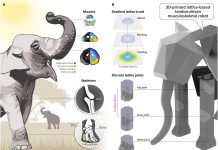
Artificial Intelligence (AI) may soon offer a safer and non-invasive way to assess heart function in patients suffering from coronary heart disease.
A study conducted by Dr. Geoff Tison and Dr. Robert Avram from the University of California San Francisco (UCSF) and the Montreal Heart Institute, respectively, demonstrated that AI can predict Left Ventricular Ejection Fraction (LVEF)—a critical measure of heart function—from standard angiogram videos.
The AI algorithm, CathEF, could replace invasive procedures, reducing risks for patients.
Training the AI
Over 4,000 angiograms, along with corresponding transthoracic echocardiograms, were used to train the CathEF AI.
The AI was optimized to identify instances where the LVEF was reduced to less than or equal to 40%, a measure that signals the need for further clinical analysis.
Accurate Predictions
The study, published in JAMA Cardiology, found CathEF accurately predicted LVEF with strong correlations to the standard non-invasive clinical approach.
The AI’s performance was validated using angiograms from the Ottawa Heart Institute and showed reliable results across diverse patient demographics and clinical conditions.
Impact on Patients and Healthcare
The new AI-powered approach could significantly enhance the diagnostic arsenal of cardiologists by leveraging data already being collected during standard angiograms, thus offering real-time, critical information that is currently inaccessible.
For patients, this could mean avoiding the risks associated with invasive ventriculography—a current method for measuring LVEF that involves inserting a catheter into the left ventricle and injecting a contrast dye.
Future of CathEF
The researchers aim to further validate CathEF by testing the algorithm at the point-of-care and evaluating its impact on clinical workflow in patients suffering heart attacks.
If you care about heart disease, please read studies about food that may harm your heart rhythm, and antioxidant drugs that may protect against stroke and heart attack.
For more information about heart health, please see recent studies about drug combos that could halve your risk of heart attack, and stroke, and results showing that one cup of nitrate-rich vegetables per day may prevent heart disease.
Follow us on Twitter for more articles about this topic.
Copyright © 2023 Knowridge Science Report. All rights reserved.



